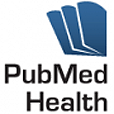2014 Feb 5. pii: S1568-1637(14)00016-6. doi: 10.1016/j.arr.2014.01.007. [Epub ahead of print]
 Efficacy and safety of medical cannabinoids in older subjects: a systematic review.
Efficacy and safety of medical cannabinoids in older subjects: a systematic review.
Abstract
 This systematic review aims to integrate the evidence on indications, efficacy, safety and pharmacokinetics of medical cannabinoids in older subjects. The literature search was conducted using PubMed, EMBASE, CINAHL and Cochrane Library. We selected controlled trials including solely older subjects (≥ 65 years) or reporting data on older subgroups. 105 (74%) papers, on controlled intervention trials, reported the inclusion of older subjects. Five studies reported data on older persons separately. These were randomized controlled trials, including in total 267 participants (mean age 47-78 years). Interventions were oral tetrahydrocannabinol (THC) (n=3) and oral THC combined with cannabidiol (n=2). The studies showed no efficacy on dyskinesia, breathlessness and chemotherapy induced nausea and vomiting. Two studies showed that THC might be useful in treatment of anorexia and behavioral symptoms in dementia. Adverse events were more common during cannabinoid treatment compared to the control treatment, and were most frequently sedation like symptoms. Although trials studying medical cannabinoids included older subjects, there is a lack of evidence of its use specifically in older patients. Adequately powered trials are needed to assess the efficacy and safety of cannabinoids in older subjects, as the potential symptomatic benefit is especially attractive in this age group.
This systematic review aims to integrate the evidence on indications, efficacy, safety and pharmacokinetics of medical cannabinoids in older subjects. The literature search was conducted using PubMed, EMBASE, CINAHL and Cochrane Library. We selected controlled trials including solely older subjects (≥ 65 years) or reporting data on older subgroups. 105 (74%) papers, on controlled intervention trials, reported the inclusion of older subjects. Five studies reported data on older persons separately. These were randomized controlled trials, including in total 267 participants (mean age 47-78 years). Interventions were oral tetrahydrocannabinol (THC) (n=3) and oral THC combined with cannabidiol (n=2). The studies showed no efficacy on dyskinesia, breathlessness and chemotherapy induced nausea and vomiting. Two studies showed that THC might be useful in treatment of anorexia and behavioral symptoms in dementia. Adverse events were more common during cannabinoid treatment compared to the control treatment, and were most frequently sedation like symptoms. Although trials studying medical cannabinoids included older subjects, there is a lack of evidence of its use specifically in older patients. Adequately powered trials are needed to assess the efficacy and safety of cannabinoids in older subjects, as the potential symptomatic benefit is especially attractive in this age group.Copyright © 2014. Published by Elsevier B.V.
- PMID:
24509411
[PubMed – as supplied by publisher]

